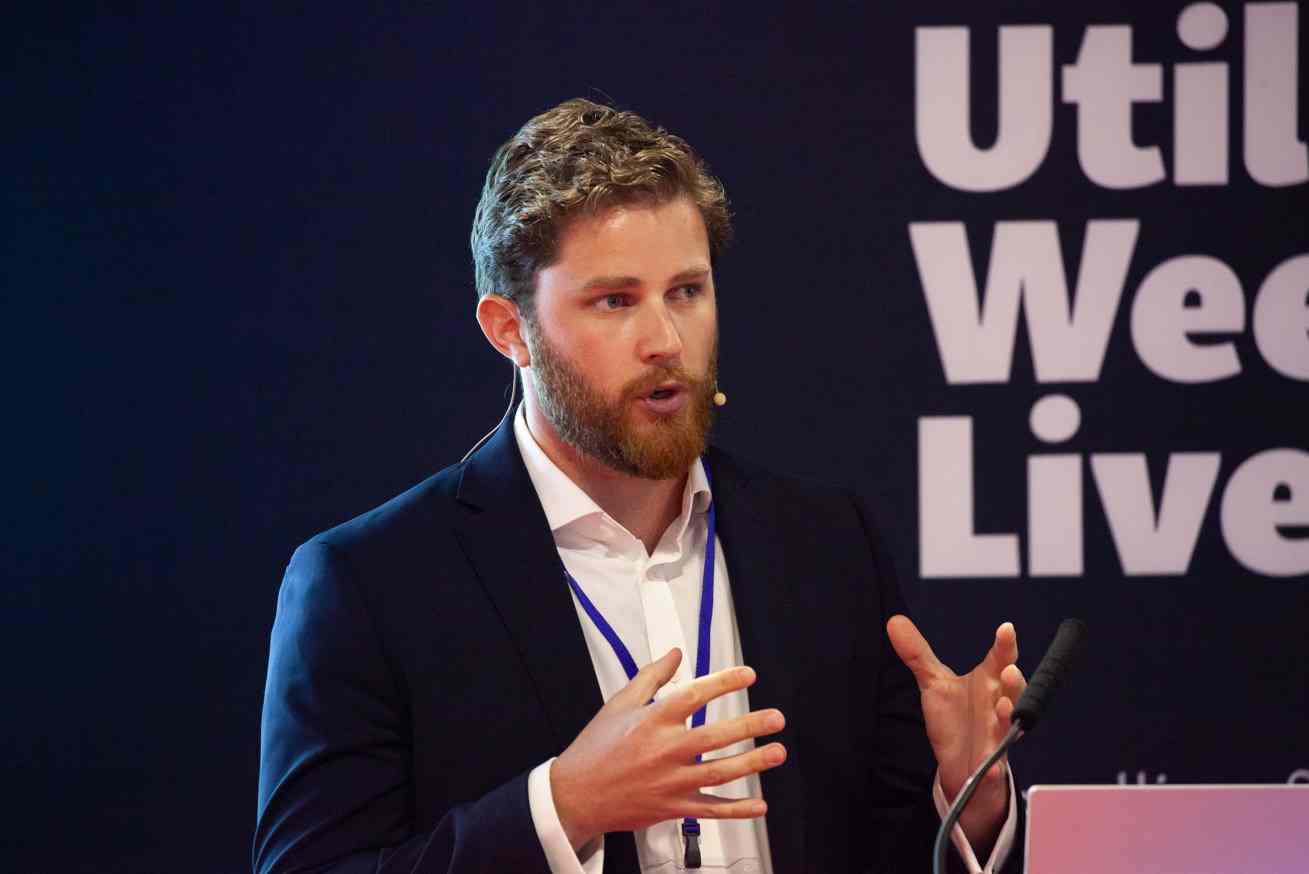This is the Sponsored paywall logged out

The energy transition opens up a world of possibilities, but are its benefits being denied vulnerable customers? Utility Week meets the head of sustainability at an energy retailer who is working to change that.
“Price signals and policy. I don’t care which government does it. I just want them to do it.”
 Asked about his wish-list for whoever forms the next British government, and Archie Lasseter, group head of sustainability at Utilita, is pretty forthright.
Asked about his wish-list for whoever forms the next British government, and Archie Lasseter, group head of sustainability at Utilita, is pretty forthright.
Lasseter views a move away from regressive levies on electricity bills that impact everyone in society to a more progressive, taxation-based system as vital for delivering a low-carbon economy in a way that doesn’t penalise customers on low incomes. And that shift should be a matter of priority for whoever ends up in power in Westminster later this year.
That’s not all. Utilita would also like to see carbon taxes on gas-fired electricity generation and gas for heating homes, with money raised ringfenced and used to enable the adoption of low carbon technologies by those who might otherwise struggle to access them, Lasseter explains.
Utility Week sat down with him to discuss all this and more in advance of his slot at Utility Week Live in May. This is what he had to say.
Archie, what’s your take on the notion of a just transition to a low-carbon economy?
AL: The just transition has been around as long as net zero. The idea of transformational change opens the door to being able to do more than decarbonise society. Because you are doing transformational change, you can package it up with a lot of other things.
So, the just transition is an enabler for change for people who have been otherwise marginalised. We need to make sure the people who can afford to pay for things, do, and help those who can’t afford to pay in the spirit of common interest. It comes back to selfish altruism – a rising tide lifts all ships.
How has Utilita been working to help its customers through the energy transition?
We recognise it can be difficult for lower income households to participate in the transition. We were the first utility in the country to install a smart prepayment meter, and 90% of our customers now have them.
We have enabled prepay customers to enjoy a better service through digitalisation and we have seen behavioural change as a result of smart meters. People without them tend to heat their home in unhealthier ways and live in colder, damper homes. When you get a smart meter, you can see where your energy is going and budget better.
That’s especially true when you factor in our award-winning app and digital displays. We have disaggregation tools which enable us to split up appliances and see how tumble dryers, washing machines, dishwashers, ovens and so on are using energy. That provides our customers with the means to reduce consumption or contain costs.
I view this type of behavioural change as another low-carbon technology. The policy landscape doesn’t always reflect that.
What are the problems with government policy as it stands?
Green policies to date have ultimately been levied through regressive taxation on energy bills – flat taxation across all energy consumers. That is just wrong.
One of the biggest things Utilita does is advocate for changes to policy. What we want to see is low-carbon technologies made available to low-income households, and the way of doing that is to get the price signal and carbon signal right.
We should remove environmental levies from electricity bills. They should be collected through general taxation. Why should it be that people who need the Warm Home Discount, for example, are also paying for it?
We also want to see a carbon tax on carbon-intensive energy – gas used for electricity generation and space heating. One of the reasons coal-fired generation has massively reduced is because the tax on it was aggressive.
The revenues generated should be ringfenced for encouraging households to adopt low-carbon technologies such as heat pumps or insulation.
What else needs to happen for an inclusive energy transition to take place?
Sometimes renters get lucky and move into a property where the landlord has installed insulation in the right places or a new boiler. But it’s a lottery.
Why don’t we have targets for domestic installation of solar panels or battery technology? Or that value new homes according to their energy performance certificate? This requires clear policy from government.
The private rental market doesn’t have the policy or regulatory landscape to incentivise it to become low carbon.
Is there is danger consumers are not engaged in overcoming climate change because it’s perceived as something for people who have money?
There is a perceptual barrier, and we are working to overcome that. But we are not going to do it alone, which is why we have worked with UK Power Networks and others on projects such as Guidelight, which aims to equip low-income households with the tools to negotiate the energy transition.
There are a lot of people who want to be part of the transition – you just have to empower them. There are people out there who wish they could do something, but feel they can’t. When you show them how, they are often willing and able to do things people who have always been comfortable might not.
They understand energy – because they’ve had to.
Want more? Archie is speaking on the first day of Utility Week Live on the Customer, Culture and Workforce Stage. Register now here.
Please login or Register to leave a comment.